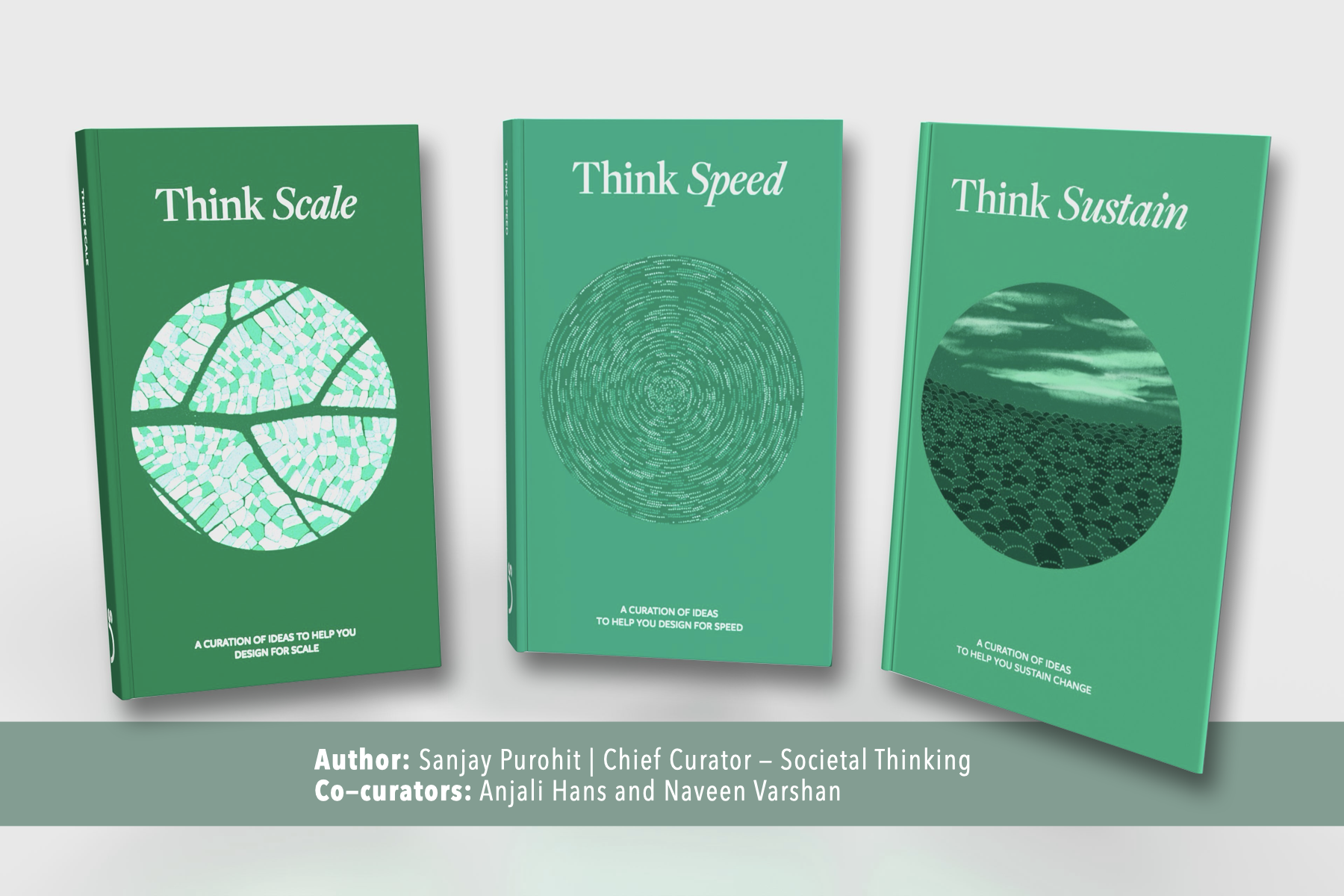We recently hosted a workshop at the Skoll World Forum on 8th April, 2022. This year’s Skoll World Forum’s theme was “Face/Forward” – learn from the past, face today’s problems and advance collectively towards a thriving new era.
This exact sentiment is at the center of our work: “How do we come together to solve at scale?”
For our workshop, we chose to start a conversation on how we look at data today and how we should change our perspective such that the benefits of data can be reaped by the entire society.
Today, 1.7MB of data is created every second for every person on Earth. Businesses, governments and civil society quickly understood the power of this data and have started using it for better control, better profitability, better governance or better decision-making. But for whom is this really better? Where are the citizens in this narrative? Currently, they are just passive producers of the data or chance beneficiaries of the way data is utilised by all other actors.
How can we turn citizens into active participants in the data narrative? Can they have the ability to see and solve their problems, the way you and I are able to see and solve with data? That, to us, is the true meaning of Data Empowerment and a way to induce Impact@Scale.
As the first step to putting citizens at the centre of the data narrative, how do we flip the way data is recorded, accessed and used by civil society organisations? How do we move from thinking of using data to do better Measurement & Evaluation (M&E) to thinking of data as a tool to activate Agency & Empowerment (A&E)? How do we move from “let me use data to make better decisions for you” to “let me enable you to see and then make better decisions for yourself”.
We call this Blue Dot Thinking, where we step into the shoes of the citizen, imagine what data can help them see and sense better and how that data can flow seamlessly into their everyday lives. We equate this to how GPS revolutionised the way we think of maps. Instead of looking at the AAA maps from outside and trying to locate ourselves in it, GPS changed the camera angle and put us as the centre of our universe. In this new world, the view is so different that we can, at once, see what is around us, how far away our favorite ice cream shop is and even figure out how much time it would take us to reach there!
We shared two examples of Blue Dot Thinking in practice:
- How FES, an environmental nonprofit organisation based in India, is helping villagers see the water situation around them and guage the most efficient ways to solve those problems.
- How Shikshalokam, an education nonprofit organisation based in India, is helping school leaders evaluate the state of their schools, teachers and children and how that is empowering them to take the right actions for their schools.
In the following 40 minutes, we spent time helping participants imagine the Blue Dot moment for their communities. They worked on three key questions:
- In your communities, who benefits the most with an ability to see?
- What data is valuable to this individual in the context of the problem?
- How can you integrate this data in their everyday lives?
You can watch the video of the event here.
We are unpacking this topic through conversations with entrepreneurs around the world solving different problems in different geographies. If this is a topic you would like to help us expand the narrative around, tell us your story or use our learning to build your blueprint, please fill out this short form.
 Back
Back


